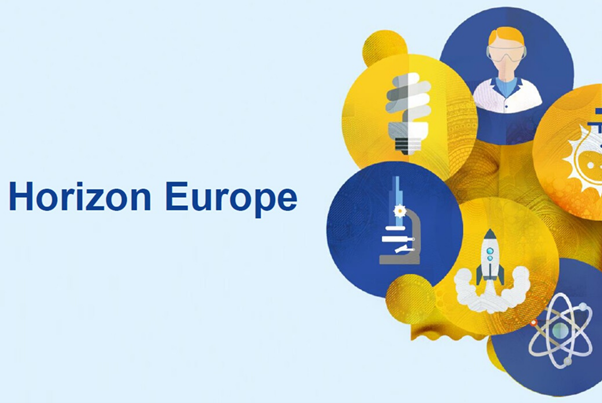On 26 May 2021, APRE (Agenzia per la Promozione della Ricerca Europea – Italy) organised the Italian National launch day of the research and innovation framework programme. The event was opened by Commissioner Gabriel (Commissioner for Innovation, Research, Culture, Education and Youth) who highlighted the Horizon Europe improvements made over the Horizon 2020.
Horizon Europe is the European Union’s Framework Program for Research and Innovation for the period 2021-2027. It is the successor to Horizon 2020. The Program has a duration of 7 years – corresponding to the EU’s long-term budget – and a total budget of 95.5 billion (+30% respect 2020), a figure that includes EUR 5.4 billion allocated to the NextGeneration EU recovery plan.
It is the largest transnational research and innovation program in the world.
It funds research and innovation activities – or R&I support activities – and does so primarily through open and competitive calls for proposals. The programme is implemented directly by the European Commission (direct management). Research and innovation activities funded by Horizon Europe must focus exclusively on civil applications.
The missions
Horizon Europe envisions the launch of research and innovation missions, aimed at increasing the effectiveness of funding by pursuing clearly identified grand goals and solving some of the biggest challenges of our time.
Each mission will include a portfolio of actions – research projects, policy measures, or even legislative initiatives – directed at achieving, within a predetermined timeframe, a bold, measurable, and socially relevant goal that could not be achieved through single actions.
The European Commission has identified five mission areas:
- Cancer
- Climate change adaptation, including societal transformation
- Healthy oceans, seas, coastal and inland waters
- Climate neutral and smart cities
- Healthy food and soils

3 Pillars for Research and Innovation
The main novelties of Horizon Europe: The European Innovation Council (EIC).
The Commission has established in Horizon Europe the European Innovation Council (EIC), already launched in pilot phase in the last period of Horizon 2020, as a “one-stop shop” to attract and support all types of innovators and innovative companies.
Indeed, the EIC is open to all types of innovators, from individuals to universities, research organizations and companies (SMEs, including start-ups and, in exceptional cases, small mid-caps), from individual beneficiaries to multidisciplinary consortia. At least 70% of the EIC budget is dedicated to SMEs.
The EIC focuses primarily on breakthrough innovation, targeting in particular market-creating innovation, while also supporting all other types of innovation, including incremental innovation.
Enhanced international cooperation
Horizon Europe envisages the possibility of extending the association to third countries with a good capacity in science, technology and innovation, provided that they are characterized by an open market economy, with fair and equitable treatment of intellectual property rights, respect for human rights, and are supported by democratic institutions.
Informal preparatory talks for the definition of agreements for the association of third countries to the Program are currently (February 2021) underway.
The new generation of partnerships
Horizon Europe will continue to support European Partnerships between the Commission, on the one hand, and Member States, the private sector, foundations and other stakeholders, on the other hand. The goal is to address global challenges and industrial modernization through concerted research and innovation efforts.
By bringing together private and public partners, European Partnerships help avoid duplication of investment and should help reduce fragmentation of research and innovation efforts in the European Union.
The program establishes the conditions and principles for the creation of three new types of Partnerships:
- Co-Programmed partnerships
- Co-financed partnerships
- Institutionalized partnerships
Open Science
Horizon Europe encourages the principles of Open Science as an approach to the scientific process based on cooperative work and the dissemination of knowledge. The Open Science approach is embodied in the following elements:
- Open access to scientific publications resulting from research funded by the Framework Program;
- Open access to research data, including those underlying scientific publications, according to the principle of “as open as possible, as close as necessary.”
Responsible management of research data must also be ensured in line with the principles of “findability”, “accessibility”, “interoperability”, and “reusability” (FAIR), while also taking into consideration the long-term preservation of data.
Focus: 2nd Pillar Cluster 6 – Food, Bioeconomy, Natural Resources, Agriculture & Environment
Human activities exert increasing pressure on soils, seas and oceans, water, air, biodiversity and other natural resources. This pressure in combination with ongoing climate change affects ecosystems and their ability to provide effective services for humanity. In this context, the goal of Cluster 6 of Horizon Europe is to advance and balance Europe’s environmental, social, and economic goals by setting human economic activities on a path of sustainability. The paradigm underpinning the Cluster is the need for transformative change in the economy and society aimed at reducing environmental degradation, halting and reversing biodiversity decline, and better managing natural resources, serving the EU’s climate targets and ensuring safe food and water.
Budget: EUR 9 billion
Who can participate
Universities, public and private research centres, associations, public administrations, sector operators, industries and encourages the participation of Small and Medium Enterprises with high technological value.
Highlights
A peculiar element of the Work Plan of Cluster 6 isthe call for a “multi-actors approach“, able to orient R&I activities to the demands and needs of society. According to this approach, stakeholders must be directly involved in the R&I process, from the planning of the action to its implementation, in a perspective of co-creation.
Within Cluster 6, international cooperation is important and takes the form of global actions (e.g., Intergovernmental science-policy Platform on Biodiversity and Ecosystem Services – IPBES; Global Earth Observation System of Systems – GEOSS) as well as multilateral initiatives (e.g., International Bioeconomy Forum, All-Atlantic Ocean Research Alliance, Mediterranean and Black Seas) and bilateral initiatives (with China and Africa).
Also contributing to the objectives of the cluster are 2 missions, “Healthy oceans, seas, coastal and inland waters” and “Soil health and food”, and 8 partnerships.




